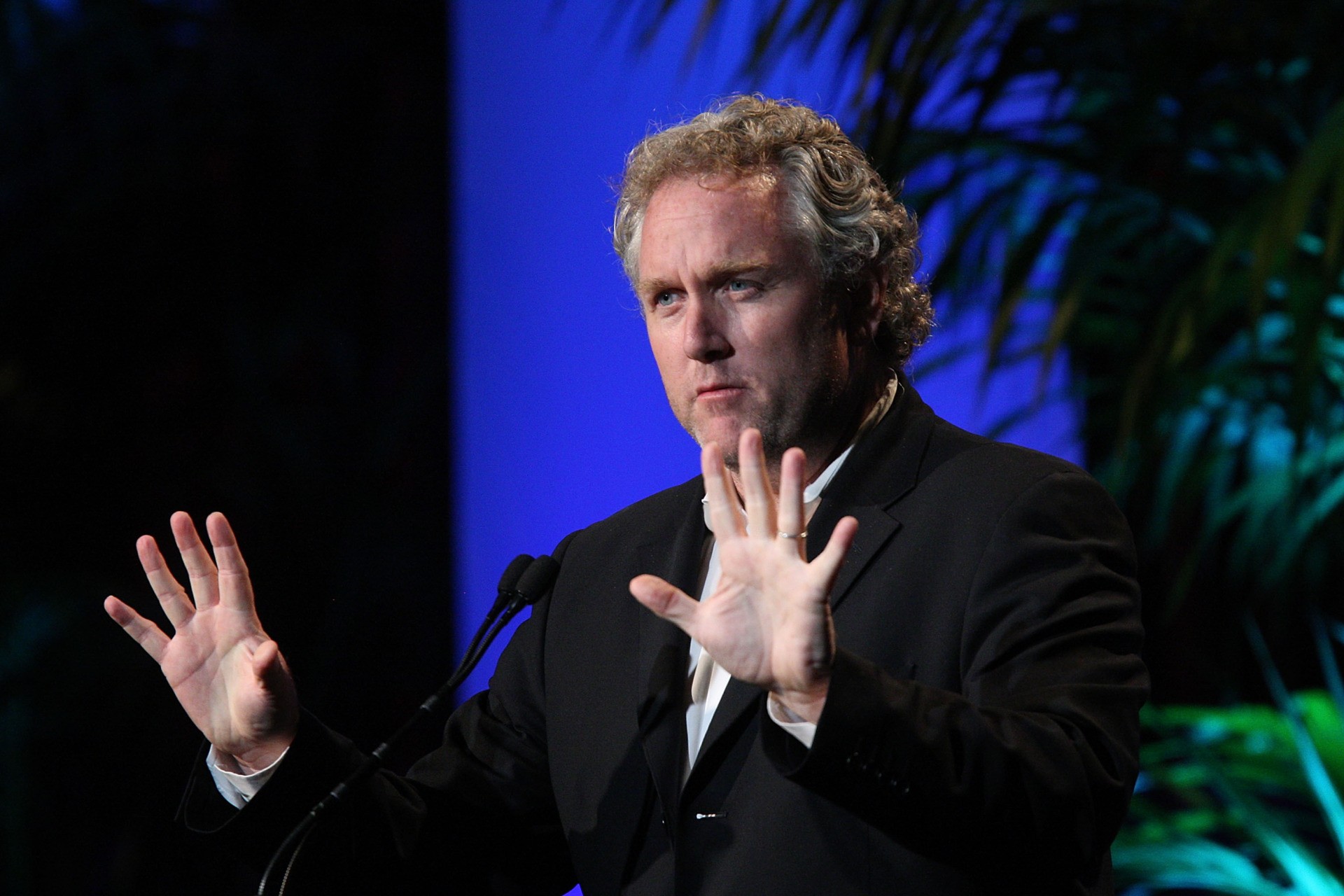Who Canceled Dr. Seuss? And Why?
It’s now been nearly three weeks since Dr. Seuss erupted into the news. Yes, the eruption is a bit strange, as the famed children’s book author died three decades ago. And yet the story is important because in it we see two things: First, the zealotry of left-wing cancel culture, which made the choice to pick this fight, and second, the power of center-right backlash in response. Yes, when confronted with the abnormal, it’s necessary for normal people to fight back.
Moreover, as the Seuss Saga plays itself out, we are seeing that while the left can win the first battle, the right can win the war.
A recap of how we got there: Back on March 1, a Virginia school district banned Dr. Seuss, and next day, March 2, Dr. Seuss Enterprises, which manages the estate of the late author, announced that it was halting publication of six of his five-dozen or so children’s books. And on that same day, President Joe Biden omitted Dr. Seuss from Read Across America Day; ironically, that very same read-to-kids day had been launched in 1998 specifically to celebrate Dr. Seuss. Then the Chicago Public Library announced that it would be pulling six Dr. Seuss books, and other libraries followed suit.
Ironically, the man behind Dr. Seuss, Theodor Seuss Geisel (1904-1991), was a lifelong political liberal, even if he wasn’t politically correct, let alone woke. But then, how could he be? In today’s world, even the living have trouble keeping up with wokeness, which requires its devotees to abide by an ever-shifting checklist of approved and disapproved phrases and concepts; for instance, the number of genders keeps expanding; by one measure, we’re now up to 64.

In this Feb. 27, 1986, photo, Theodor Seuss Geisel, known as Dr. Seuss, talks to some children with his book “You’re Only Old Once!” at Barnes and Noble in New York. (AP Photo/Michael J. Pennacchia)
Summing up the impact of all this extremism in testimony before Congress earlier this month, Glenn C. Loury, a prominent Black academic, called wokeism “a formula for tyranny and more racism.”
So if these are the stakes—tyranny and, indeed, more racism—then it only makes sense that people of good will should wish to fight wokeism. And yet it turns out that when Republicans do fight the woken, they are mocked. For instance, The New Yorker, that citadel of smug liberalism, made fun of House Minority Leader Kevin McCarthy (R-CA) for bringing up the issue of Dr. Seuss, while allegedly neglecting to talk about the Covid relief bill that was passed last week. In fact, McCarthy put his vote where his mouth was; he voted against that bill, and was not shy about why: “It showers money on special interests, but spends less than nine percent on actually defeating the virus.”
In the meantime, McCarthy felt perfectly capable of expressing himself on both fiscal and cultural issues. Yet even so, on March 11, the queen of the woken, Rep. Alexandria Ocasio-Cortez (D-NY), tweeted:
So we can see: The left is trying to laugh away the Dr. Seuss issue. And that immediately inspires the question: Why is the left, which picked the fight in the first place, now so eager to bury it? Could it be that the left senses that attacking Dr. Seuss was overreach?
In response, the right should use this as a teachable moment for the nation: Behold the woke left and its works.
Indeed, the Dr. Seuss issue persists, because it’s interesting, and also because it’s revealing; that is, the cancel-culture aspect of wokeism reveals much about how the hard left sees the world. And that worldview is scary, even to many Democrats. For instance, it scares Sarah Silverman, the comedian who loudly supported Bernie Sanders in both 2016 and 2020. Obviously, Silverman is on the left, and yet in the past few years, she has become vexed by censorious hyper-leftism; recently, on Instagram, she raged against “absolutist-ness,” calling it “such a turnoff to me.” She added, “It’s so f ___ing elitist. You know, for something called ‘progressive,’ it allows for zero progress.”
It’s in this harsh light that we might consider other recent eruptions of wokism (which goes by other names, too, including political correctness, critical race theory, identity politics, intersectionality, and successor ideology), and such eruptions include the fights over the toy Mr. Potato Head, the cartoon character Pepe LePew, and the wrongly accused blue-collar workers at Smith College.
Oh, and let’s not forget the posh and oh-so-woke Grace Church School in Manhattan, where the use of the words “boys,” “girls,” and “parents,” is now discouraged; indeed, the list of offending words is now so long that the school has published a 12-page list of linguistic dos and don’ts.
We might also observe that in each of these cases, the left started the fight. That is, it was the woken who found something they didn’t like and sought to crush it. Indeed, it becomes a cruel ritual of purging and scourging, all part of “the religion of identity politics,” in the mordant phrasing of gay conservative Douglas Murray, author of the new book, The Madness of Crowds: Gender, Race and Identity.
Yet because this process of metaphorical book-burning and witch-hunting is so unseemly to the public, the woken often shrink when exposed in their wokery. Why, precisely? Because widespread exposure makes them look like crazy people, and this revelation can be costly.
Indeed, such was the case, for instance, with journalism professor Melissa Click, who was fired from the University of Missouri for seemingly demanding violence (although all was not lost for Click, as she was soon hired at another university–Gonzaga alumni, please take note).

In this Nov. 9, 2015 frame from video provided by Mark Schierbecker, Melissa Click, right, an assistant professor in the University of Missouri’s communications department, confronts Schierbecker and later calls for “muscle” to remove him from the protest area in Columbia, Missouri, where he was reporting on the protest. (Mark Schierbecker via AP)
When the left is caught overdoing its wokeness, it attempts, AOC-style, to stymie the criticism by mocking the critics. At such moments, the new party line then becomes, “Those silly right-wingers, look what they’re worried about now. Don’t they have anything better to worry about?” And the answer is that rightists do have better things to worry about, and yet sometimes, it’s necessary to drop everything and come to the defense of history and tradition—especially when it’s such revered figures as Abraham Lincoln and Theodore Roosevelt who need defending.
In the meantime, the rest of us might ask: Don’t woke leftists have anything better to do than attack U.S. history, and by extension, the U.S. itself? And since the answer is that they obviously don’t have anything better to do, patriots must rally in opposition to the next round of statue-toppling and history-erasing.
Culture and History First, Then Politics
As the late Andrew Breitbart always said, “Politics is downstream from culture.” That is, today’s cultural fight is tomorrow’s political fight.
We can add, too, that the past is upstream of the present; that is, past events have flowed down to us today. And that’s one reason why even children’s author Dr. Seuss is important–because all history, including cultural history, teaches us something potentially useful. Sometimes we might look upon an historical event and say, “Yes, we should be inspired by that,” while at other times, we can look and say, “Let’s never make that mistake again.” Either way, and at all times, history is important; as the Roman statesman Cicero observed:
To be ignorant of what occurred before you were born is to remain always a child. For what is the worth of human life, unless it is woven into the life of our ancestors by the records of history?
And yet if we have such knowledge, we can be adults, participating in the shaping of our culture and the making of our politics. More recently, the 19th century English philosopher and journalist William Godwin explained:
Make men wise, and by that very operation you make them free. Civil liberty follows as a consequence of this; no usurped power can stand against the artillery of opinion.
Such should be our goal: To be wise enough to form our own opinions, thereby doubling our resolve to defend our God-given, as well as constitutional, rights. And so that’s why we can take our stand—not so much to defend Dr. Seuss and everything he ever wrote or drew, but rather, to defend our right to read Dr. Seuss and to decide for ourselves. No woke overseers needed.

Breitbart News founder Andrew Breitbart speaking at an event in Beverly Hills, California, on June 12, 2011. Breitbart’s famous dictum was that “Politics is downstream from culture.” (David McNew/Getty Images)
In fact, in the case of Dr. Seuss, Americans have been actively defending their right to read. In the days after Dr. Seuss’ cancellation, his books soared to the top of Amazon’s best-seller list; indeed, as the Associated Press reported on March 11, Dr. Seuss sold 1.2 million books in the first week after the partial cancellation, more than quadruple the total from the week before.
Okay, so what about the specific banned Dr. Seuss books? They’ve been selling, too. As of March 20 on Amazon, one of the forbidden works, And to Think That I Saw It on Mulberry Street, was selling for $200, and some prices have been much higher. The sudden high price is perhaps the result of Amazon’s algorithm reacting to the sudden surge in demand, although one can’t rule out a little opportunistic price-gouging. In any case, such high prices for Dr. Seuss send a clear signal to the crookedly entrepreneurial, and so counterfeiters will soon spring into action. Already, in fact, it’s easy to find dubious PDF versions on the web. We should note, of course, that such sites come with a strong warning of Buyer Beware. And yet at the same time, it seems readily apparent that human curiosity—combined with human greed and the willingness to flout copyright laws—will make sure that the entire Dr. Seuss canon will always be available.
We can observe, incidentally, that much the same thing happened after the HBO Max streaming service pulled the 1939 classic Gone With The Wind; DVD sales soared. And the same sales spike held true for lesser films threatened with cancellation, such as Disney’s Swiss Family Robinson. Indeed, even sales of humble Mr. Potato Head jumped 70,000 percent in the wake of the news that Mr. P. would soon be emasculated.

Books by Theodor Seuss Geisel, aka Dr. Seuss, including “On Beyond Zebra!” and “And to Think That I Saw it on Mulberry Street,” are offered for loan at the Chinatown Branch of the Chicago Public Library on March 2, 2021 in Chicago, Illinois. The two titles are among six by the famed children’s book author that will no longer be printed due to accusations of racist and insensitive imagery. The other titles include “If I Ran the Zoo,” “McElligot’s Pool,” “Scrambled Eggs Super!” and “The Cat’s Quizzer.” (Scott Olson/Getty Images)
We can add that this snapping up of endangered cultural items speaks to more than just a desire for historic preservation. It also speaks to the desire not to be pushed around, including the simple desire to push back against noxious authority.
Some times, to be sure, this pushing back can seem knee-jerk, even mindless. For instance, there’s that well-known scene from the 1953 Marlon Brando movie, The Wild One, in which a woman asks the Brando character, “What are you rebelling against?” And he answers with a shrug, “Whaddya got?”
That sort of automatic defiance of authority grew stronger, of course, in the following decade. In fact, in 1967, the Beatles captured that contrary spirit in their simple and yet melodic song, “Hello, Goodbye”; sample lyrics: “You say yes, I say no/ You say stop and I say go,” and “I say high, you say low/ You say why and I say I don’t know.”
Most recently, the French Charlie Hebdo magazine produced a cover cartoon on Meghan Markle and Queen Elizabeth that’s guaranteed to offend many, even as it makes others laugh. And yes, that’s the same Charlie Hebdo that suffered an Islamic terrorist attack in 2015, leaving a dozen dead. After such an awful massacre, the mere fact that the magazine is still publishing is a testament to the resilience of human resolve. (Good taste, of course, is a whole ‘nother issue.)
To be sure, not everyone appreciates the orneriness, even perversity, of the human spirit, and yet it’s woven into our nature—and it’s a deep source of our love of liberty, as expressed, for example, in such resonant phrases as Live Free or Die, Don’t Tread on Me, and Molon Labe.
As the playwright Bertolt Brecht argued, “In the contradiction is the hope.” Indeed, if we look at the thumb on our hand, we see the profound value of contraposition–because in the thumb opposite our other four fingers, we see a highly sophisticated tool for grasping things and for solving problems.
The Thin Red Line
Some might say that the woken are winning. After all, those half-dozen Dr. Seuss books are still banned, and libraries are still pulling their copies.
Yet that’s the battle, not the war. That point was made on March 2 by ABC late-night host Jimmy Kimmel, who warned his fellow liberals that such ridiculous PC could bring back You Know Who:
This is how Trump gets reelected, by the way. Cancel Dr. Seuss, cancel Abe Lincoln, melt down Mr. Potato Head’s private parts and throw them at the Muppets. That is his path to victory the next time around.
And it’s not just liberal comedians issuing such warnings to their flocks. On March 10, New York Times columnist Thomas B. Edsall headlined his piece, “Democrats Are Anxious About 2022—and 2024.” Edsall, who is one of those old-line leftists more focused on class than culture, quoted a procession of academics and politicos concerned that the emergent cultural leftism of the elite would turn off the non-woke masses—who are, of course, a majority of the voters.
For instance, Ryan Enos, a professor of government at Harvard, told Edsall that “college-educated whites” are increasingly a liability to the Democrats “because they repel other voters from the coalition.” Enos added, “The views emanating from these [left-wing] cities and institutions are out of step with a large portion of the electorate.”
Speaking of electorates and elections, one is reminded of the 1884 presidential election, when Grover Cleveland won the White House. As one supporter said of Cleveland at the time, “We love him for the enemies he has made.”
So now today: The woke left has gone to battle against Dr. Seuss, as well as against so many other familiar figures and creations. Meanwhile, Republicans have come to the defense of them, in the name of our heritage—and of common sense.
So what now of the Democrats? It would seem that, fearful of AOC-type challenges from within their party—as just happened in Nevada, where far-left insurgents swept away the old political machine—most elected Democrats wish to only whisper their defense of tradition, if they defend it at all.
So that leaves Republicans to make a full-throated defense of our culture and heritage; we might think of the GOP as the Thin Red Line. And if that defense makes the GOP the enemy of the woken, so be it. And if so, then what was once said about Grover Cleveland might now be said about anti-woke Republicans: We love them for the enemies they have made.

COMMENTS
Please let us know if you're having issues with commenting.